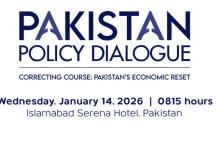RIYADH, DEC 9: Chinese President Xi Jinping met Gulf Arab leaders in Riyadh on Friday in the first of two “milestone” Arab summits showcasing Saudi Arabia’s Crown Prince Mohammed bin Salman as an aspiring leader of the Middle East and key partner for global powers.
Xi, who has been welcomed in Saudi Arabia with pomp and ceremony, signed a strategic partnership pact with the world’s top oil exporter a day before Friday’s meeting with the energy-rich, six-nation Gulf Cooperation Council.
He was due to hold wider talks later with leaders of Arab League states spanning the Gulf, Levant, and Africa.
The United States is warily watching the growing influence of economic rival Beijing in the region, where China has a vested interest as the world’s biggest energy consumer and Chinese firms are expanding into technology and other infrastructure.
Xi’s visit also comes at a time when Riyadh’s long-standing alliance with Washington has been strained over human rights issues, energy policy and Russia, as well as Gulf doubts about the commitment of main security guarantor America to the region.
At the start of the China-GCC summit, Prince Mohammed heralded a “historic new phase of relations with China”.
He earlier pledged that Gulf states would remain “a safe and reliable source to supply the world with its energy needs”, underlining that oil and gas would continue to be important energy sources for decades.
In a lengthy joint statement, Beijing and Riyadh committed to enhancing cooperation and stressed principles of sovereignty and “non-interference”, while affirming the importance of a peaceful solution to the Ukraine conflict.
Saudi Arabia and Gulf allies have defied US pressure to break with fellow OPEC+ oil producer Russia over its invasion of Ukraine and to limit dealings with China, as they try to navigate a polarised world order with an eye on national economic and security interests.
Oil giant Saudi Arabia is a top supplier to China and the joint statement reaffirmed the importance of global market stability and energy collaboration while striving to boost non-oil trade and enhance cooperation in peaceful nuclear power.
“The two sides reaffirmed that they will continue to firmly support each other’s core interests.”
In a nod to Gulf security concerns over Iran, another important oil supplier to China and with whom Beijing has good ties, they agreed the need to “strengthen joint cooperation to ensure the peaceful nature of Iran’s nuclear programme” and for Tehran to respect “principles of good-neighbourliness”.
Riyadh also voiced support for Beijing’s “One China” policy on the issue of Taiwan. Xi invited King Salman to visit China, Saudi state television reported.
Milestones
The Chinese leader said his visit heralded a “new era” in relations. “China looks forward to working with Saudi Arabia and Arab states to turn the two summits into milestone events in the history of China-Arab relations and China-GCC relations, and bring these relations to new heights,” the foreign ministry cited Xi as saying.
Qatar’s emir, Kuwait’s crown prince, the kings of Bahrain and Jordan and presidents of Egypt, Tunisia, Djibouti, Somalia and Mauritania are among rulers attending alongside leaders and prime ministers of Iraq, Morocco, Algeria, Sudan and Lebanon.
Ahead of the summits, Xi held bilateral talks with Kuwait Crown Prince Sheikh Meshal al-Sabah, Egyptian President Abdel Fattah al-Sisi, Iraqi Prime Minister Shia al-Sudani, Sudanese leader General Abdel Fattah al-Burhan and Palestinian President Mahmoud Abbas.
Diplomats said the Chinese delegation would sign agreements and memoranda of understanding with several states in addition to Saudi Arabia, which inked an MOU with Huawei on cloud computing and building high-tech complexes in Saudi cities.
The Chinese tech giant has participated in building 5G networks in most Gulf states despite US concerns over a possible security risk in using its technology.

















